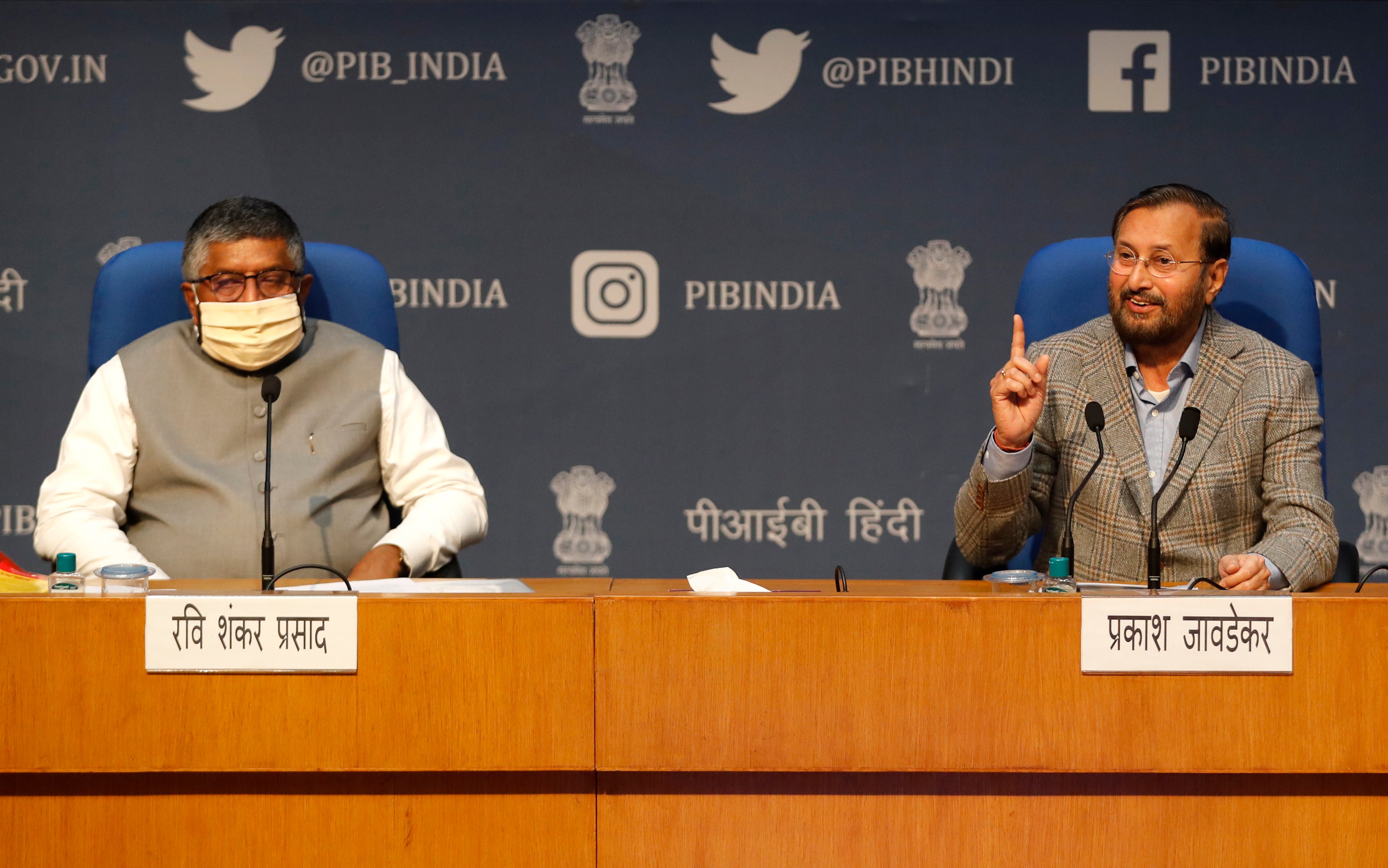Indian police target Twitter over video of elderly Muslim man’s beating as questions mount over platform’s status
India’s new internet regulations have already been challenged in court

Already facing a row with the Indian government over new internet regulations, Twitter has now been targeted with a criminal complaint by the police after a video was shared on the platform of an elderly Muslim man being beaten up.
Twitter has long argued that it is a platform rather than a publisher, meaning it is not criminally responsible for the content posted by users.
But on Tuesday, the police in Uttar Pradesh state filed a case that named Twitter and several others as suspected of provoking unrest between members of different communities or religions.
Two videos posted to Twitter showed an elderly Muslim being beaten by a group of young men and having his beard cut off, and later the victim recounting the incident and saying that he was made to chant a Hindu slogan during the ordeal.
The incident was widely reported on by mainstream Indian media, but police in the Ghaziabad district where it took place say religion was not a motivation for the attack and that it was started by a dispute over a transaction between the men. Three suspects are in custody.
The police case comes at a time when Twitter is involved in a standoff with the government over the new IT rules, which give the authorities more powers to police online content. They include a requirement for social media companies to erase content that authorities deem unlawful, to comply with government takedown orders, to help with police investigations and identify the originators of “mischievous information”.
The new rules were introduced in February and they came into effect on 26 May. Last month, Twitter had expressed concern that these rules are a threat to freedom of expression. But the Indian government had warned that failure to comply with them could result in social media platforms losing their status as content “intermediaries”, which gives them legal protections over the content posted.
In reaction to the latest controversy over the video of a Muslim man, India’s minister for communications, electronics & information technology Ravi Shankar Prasad on Wednesday said that “what happened in UP (Uttar Pradesh) was illustrative of Twitter’s arbitrariness in fighting fake news”.
“While Twitter has been over-enthusiastic about its fact-checking mechanism, it’s failure to act in multiple cases like UP is perplexing and indicates its inconsistency in fighting misinformation,” Mr Prasad said.
The reference to Twitter’s “over-enthusiasm” appears to stem from an episode in May where the social media platform flagged tweets by the ruling Bharatiya Janata Party as “manipulated media”, something figures in the government reportedly objected to.
On Wednesday, Mr Prasad, who is also India’s justice minister, in a series of tweets said Twitter was given multiple opportunities to comply with the new guidelines but it has “deliberately chosen the path of non-compliance”.
“The culture of India varies like its large geography. In certain scenarios, with the amplification of social media, even a small spark can cause a fire, especially with the menace of fake news. This was one of the objectives of bringing the intermediary guidelines. It is astounding that Twitter, which portrays itself as the flag bearer of free speech, chooses the path of deliberate defiance,” the minister tweeted.
“If any foreign entity believes that they can portray itself as the flag bearer of free speech in India to excuse itself from complying with the law of the land, such attempts are misplaced,” Mr Prasad warned.
Twitter had said earlier on Tuesday that it was making every effort to comply with the new regulations. It said it had appointed an interim chief compliance officer in India, a requirement under the new regulations, and that it would soon notify the government of its progress on other steps required.
Several digital rights organisations have already challenged the new guidelines in the courts arguing that they are unconstitutional.
Meanwhile, as some local media reported Twitter had lost its “intermediary status” for failing to comply with the new law, the Internet Freedom Foundation, an Indian digital liberties organisation, cautioned against such an interpretation.
In a series of tweets, the IFF explained that Twitter’s immunity from prosecution could not be revoked by any power other than a judgement from the courts itself.
“There is no immediate penalty which flows from non-compliance beyond loss of immunity determined by courts on evidence and legal submissions,” the IFF tweeted.
Additional reporting by agencies
Subscribe to Independent Premium to bookmark this article
Want to bookmark your favourite articles and stories to read or reference later? Start your Independent Premium subscription today.

Join our commenting forum
Join thought-provoking conversations, follow other Independent readers and see their replies